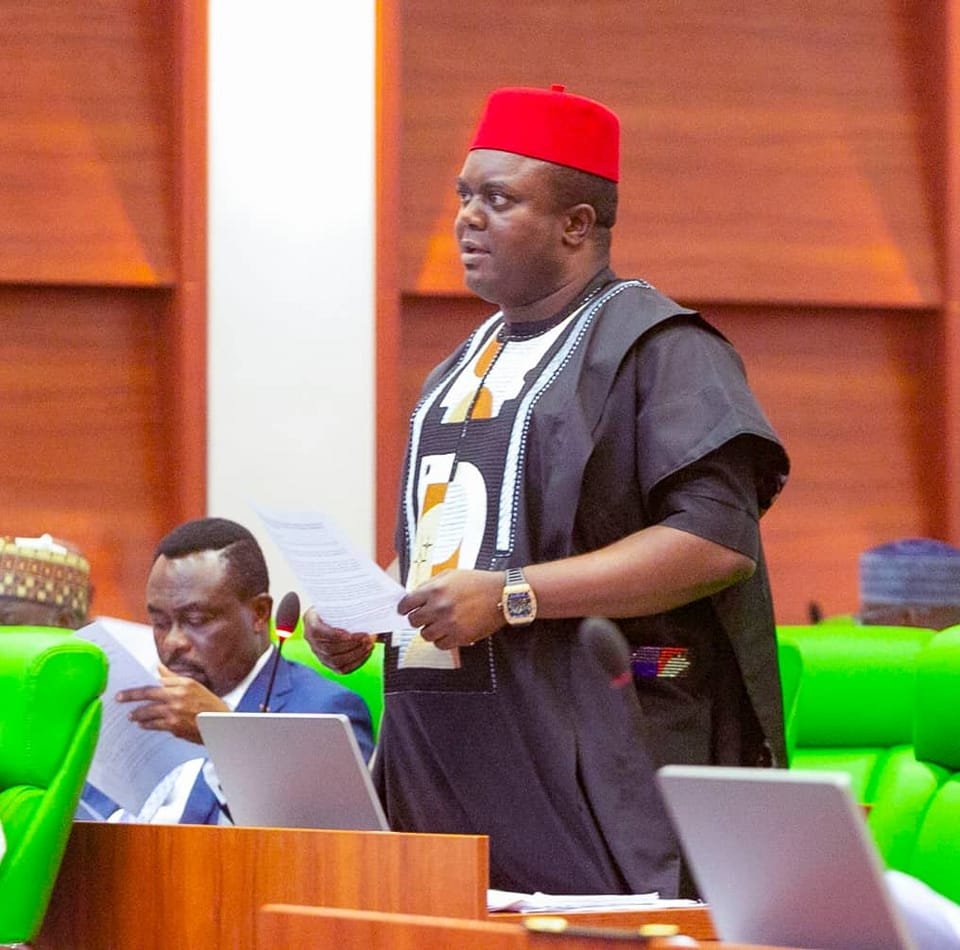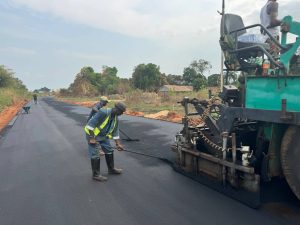On 2025 Workers’ Day, Agbodike Celebrates Workers’ Strength, Envisions Brighter Future Under Supportive Leadership
As countries across the globe mark International Workers’ Day, Thursday, May 1, 2025, Nigerian political leader and stakeholder in the All Progressives Grand Alliance (APGA), Hon. Paschal Agbodike, has joined the chorus of voices paying glowing tribute to Nigerian workers for their unwavering dedication, resilience, and service in the face of economic adversity.
In a message that resonates with the challenges and hopes of the Nigerian workforce, Agbodike praised the tenacity and spirit of Nigerian workers, especially those serving in Anambra State, who have continued to carry out their duties diligently despite widespread inflation, poor infrastructure, wage stagnation, and job insecurity. According to him, workers have remained the “lifeblood and engine room” of Nigeria’s administrative and economic survival, even as the country faces deepening economic and social tensions.
The lawmaker, who formerly served as Deputy Speaker of the Anambra State House of Assembly and continues to play a vital role within APGA, used the opportunity of May Day to reflect on the invaluable contributions of workers across both public and private sectors, asserting that the sustainability of any economy is largely dependent on the productivity and morale of its labor force. Agbodike emphasized that while physical capital and policy reforms are important, human labor remains the most important resource in any thriving economy.
YOU MAY READ
Anambra 2025: I Want My Son to Emulate Chukwuma Soludo ~ Osita Chidoka
“Nigerian workers have continued to toil and keep the wheels of our national and state institutions running, often under excruciating circumstances. From civil servants who remain committed despite delayed or insufficient salaries, to factory workers and artisans who operate with minimal tools or support, the perseverance is admirable. These individuals deserve our collective gratitude and more importantly, our institutional protection,” he said in his statement.
Beyond praising the workforce, Agbodike did not shy away from addressing the difficult reality confronting Nigeria’s labor environment. He pointed out that the current economic climate is particularly harsh on the working class, who are often the first to feel the impact of inflation, fuel subsidy removal, devaluation of the naira, and inadequate healthcare systems. He therefore called on leaders at all levels to prioritize the welfare of workers by implementing proactive, transparent, and fair labor policies that would not only protect their rights but also empower them to lead productive lives.
According to Agbodike, any nation that hopes to grow sustainably must recognize the centrality of its workforce to every aspect of governance and national development. He urged policy makers and government functionaries to make deliberate efforts to reimagine labor relations in Nigeria, ensuring that the rights, wages, and well-being of workers are not compromised in the name of fiscal prudence or economic reforms.
He was particularly vocal about the need for renegotiating wage structures in Nigeria. Citing the persistent underpayment of workers by some private and public institutions, he noted that unfair compensation was a major factor contributing to rising cases of insecurity, corruption, and declining productivity.
YOU MAY READ
𝐒𝐨𝐥𝐮𝐝𝐨’𝐬 𝐭𝐨𝐰𝐧 𝐡𝐚𝐥𝐥𝐬 𝐚𝐧𝐝 𝐭𝐡𝐞 𝐚𝐥𝐥-𝐞𝐦𝐛𝐫𝐚𝐜𝐢𝐧𝐠 𝐯𝐨𝐭𝐞 𝐨𝐟 𝐜𝐨𝐧𝐟𝐢𝐝𝐞𝐧𝐜𝐞
“The country must begin to have honest conversations with organized labor on what constitutes a livable wage in 2025. As the cost of living continues to rise sharply, the current minimum wage can no longer support the average Nigerian worker or their family. This gap between labor output and compensation is fueling frustration, emigration, and in many cases, criminal activities. We need a national framework for fair wages,” he said.
Agbodike’s message was not only about identifying problems but also about highlighting efforts being made to improve the situation. He used the opportunity to commend Anambra State Governor, Professor Chukwuma Charles Soludo, for what he described as a “workers-friendly administration.” According to him, Governor Soludo has distinguished himself through pro-labour policies and initiatives that aim to improve the lives of civil servants and create an enabling environment for entrepreneurship and private enterprise.
He cited Soludo’s prompt payment of salaries and pensions, as well as various reforms in health, education, and infrastructure as examples of leadership that listens and acts in favor of the people. “Governor Soludo has demonstrated time and again that he recognizes the indispensable role of workers in governance. His administration’s efforts to improve working conditions, enhance human capital development, and implement digitized processes are commendable. We need more leaders like him who understand that you cannot have a functioning state without a functioning workforce,” he said.
Observers agree that Governor Soludo’s reforms have focused heavily on building institutional capacity within the civil service. For instance, in 2024, the state introduced a digital Human Resource Management System to streamline staff records, payroll, and pension processes—making service delivery more transparent and efficient. Agbodike believes this kind of innovation should be replicated across all 36 states of the federation.
Beyond his commentary on governance and leadership, Agbodike used the Workers’ Day platform to advocate for a national rethink of labor productivity and employment creation. He bemoaned Nigeria’s high youth unemployment rate and described it as a ticking time bomb. He argued that the nation cannot achieve long-term stability or development if the bulk of its population, especially young people, remain unengaged, underemployed, or idle.
YOU MAY READ
Anambra Guber 2025: Anglican Clerics Endorses Soludo, Says Nobody is contesting with him
“The idle hand becomes a tool for societal decay. When we fail to provide jobs for our young people, we are directly fueling the insecurity, cybercrime, and social unrest that we claim to be fighting. The way forward is deliberate investment in job creation, industrialization, vocational training, and youth empowerment. These are not luxuries—they are necessities,” Agbodike said.
He called on federal and state governments to partner more effectively with the private sector to stimulate job creation, particularly in high-potential sectors such as technology, agriculture, creative arts, renewable energy, and manufacturing. According to him, a workforce that feels empowered and included will always outperform one that feels abandoned and exploited.
On the broader significance of May Day, Agbodike urged Nigerians not to forget the historical roots of the celebration. International Workers’ Day, also known as Labour Day, is not merely a public holiday, he said, but a reflection of centuries of struggle by the working class against exploitation, inequality, and poor working conditions. He emphasized that the gains made so far must be preserved and expanded, not reversed.
International Workers’ Day traces its origin to the labor union movement, specifically the eight-hour day movement, which advocated for eight hours for work, eight hours for recreation, and eight hours for rest. While some of these principles have been adopted globally, the struggle for decent working conditions continues, especially in developing countries like Nigeria where labor laws are often weakly enforced.
In Agbodike’s words, “May Day is a reminder that the fight for social justice is far from over. Workers must be protected from exploitation, arbitrary dismissal, harassment, and hazardous environments. Government agencies like the National Industrial Court, the Ministry of Labour, and the Nigeria Labour Congress must be strengthened to perform their roles effectively.”
He also acknowledged the evolving nature of labor in the digital era, where many workers are now part of the informal gig economy or engaged in remote work. He stressed the importance of updating labor laws to reflect these changes, so as to ensure that all workers—whether formal or informal—enjoy similar protections and benefits.
Agbodike’s May Day message has received positive reactions across various quarters. Workers’ unions in Anambra and other parts of the Southeast commended his forthrightness and commitment to labor advocacy. A spokesperson for the Nigerian Union of Teachers (NUT) in the state, Mrs. Chinyere Obi, described Agbodike as “one of the few politicians who consistently acknowledges the struggles of ordinary workers.” Similarly, members of the state’s local government workers’ union praised his call for equitable wage structures and robust job creation policies.
As Nigeria continues to face inflation, mounting debt, declining foreign reserves, and rising insecurity, the plight of the average worker remains a pressing issue that cannot be ignored. Agbodike’s message on Workers’ Day therefore serves as both a celebration and a clarion call—a celebration of resilience, and a call to action for reform, investment, and justice in the world of work.
In his closing remarks, Agbodike expressed optimism that the future holds promise for Nigerian workers, provided there is sustained commitment by both government and private stakeholders to implement structural changes. He encouraged workers to continue to be diligent, ethical, and hopeful, assuring them that their sacrifices are seen and appreciated.
YOU MAY READ
Solution for Good Governance Congratulates Governor Soludo on Vanguard Governor of the Year Award
“As we commemorate this year’s Workers’ Day, I want Nigerian workers to know that they are not alone in their struggles. Many of us recognize their efforts and are committed to making sure that their voices are heard. Together, we can build a nation where labor is respected, rewarded, and empowered to thrive,” he concluded.
As the 2025 edition of International Workers’ Day is commemorated with rallies, speeches, and parades across the country, Paschal Agbodike’s message stands out as a poignant reminder of the central role workers play in shaping Nigeria’s past, present, and future. It is a message that both affirms their value and challenges leadership to do more—not in words alone, but through action





